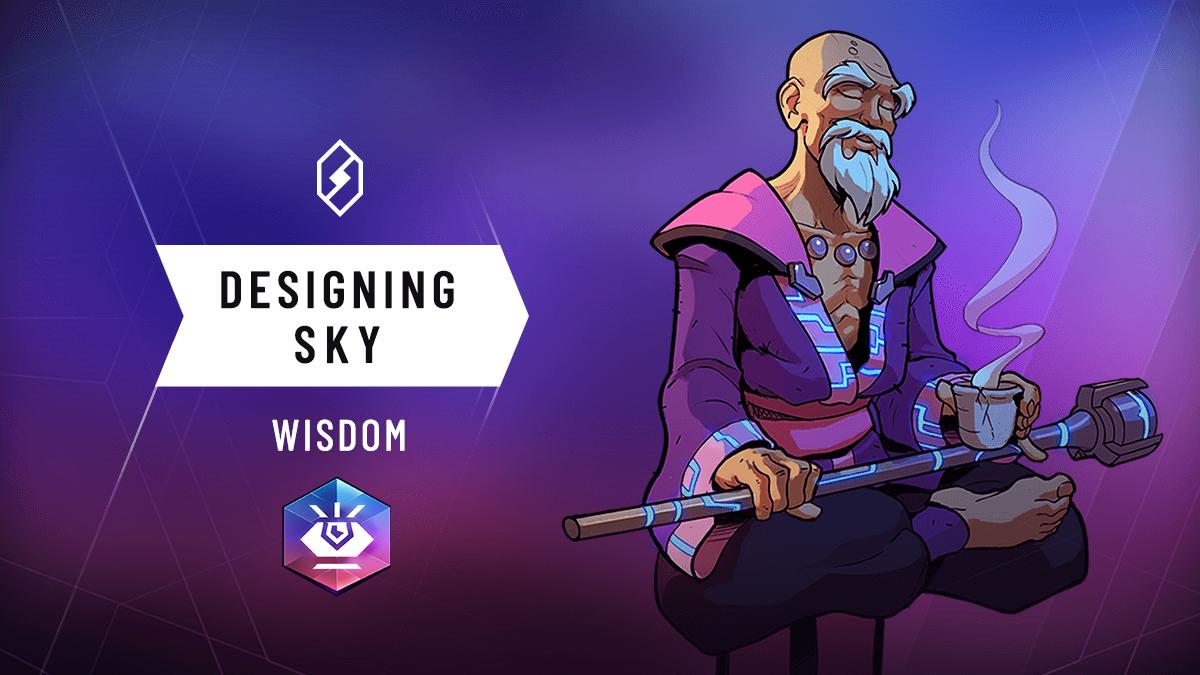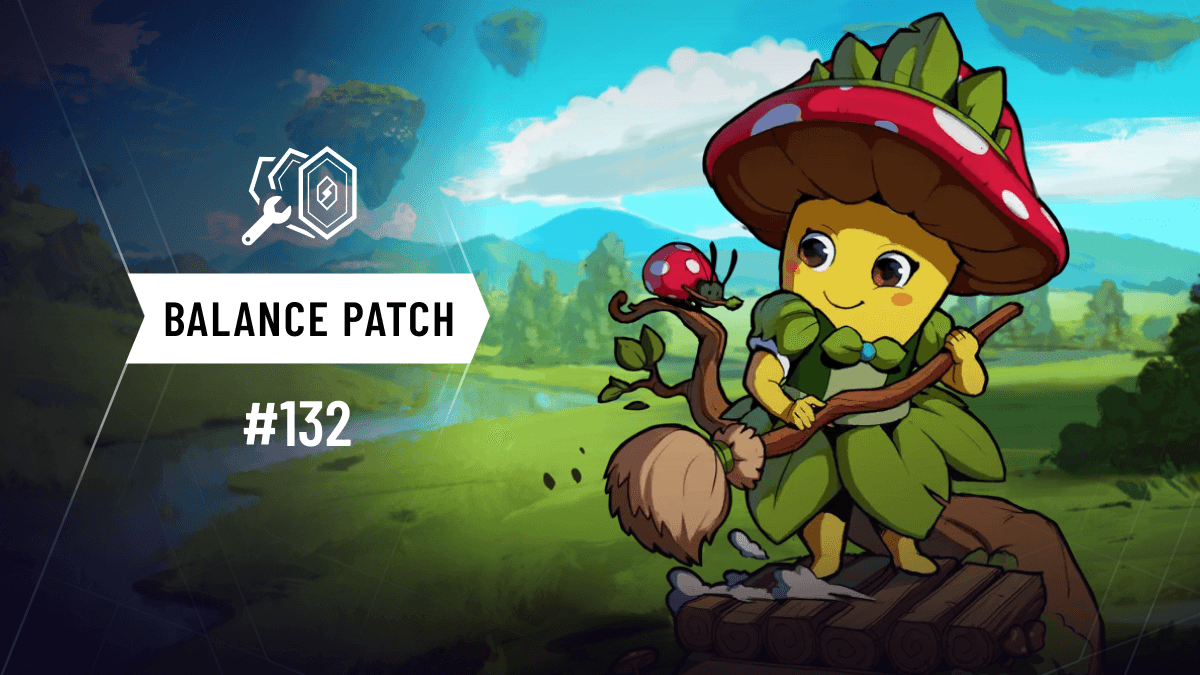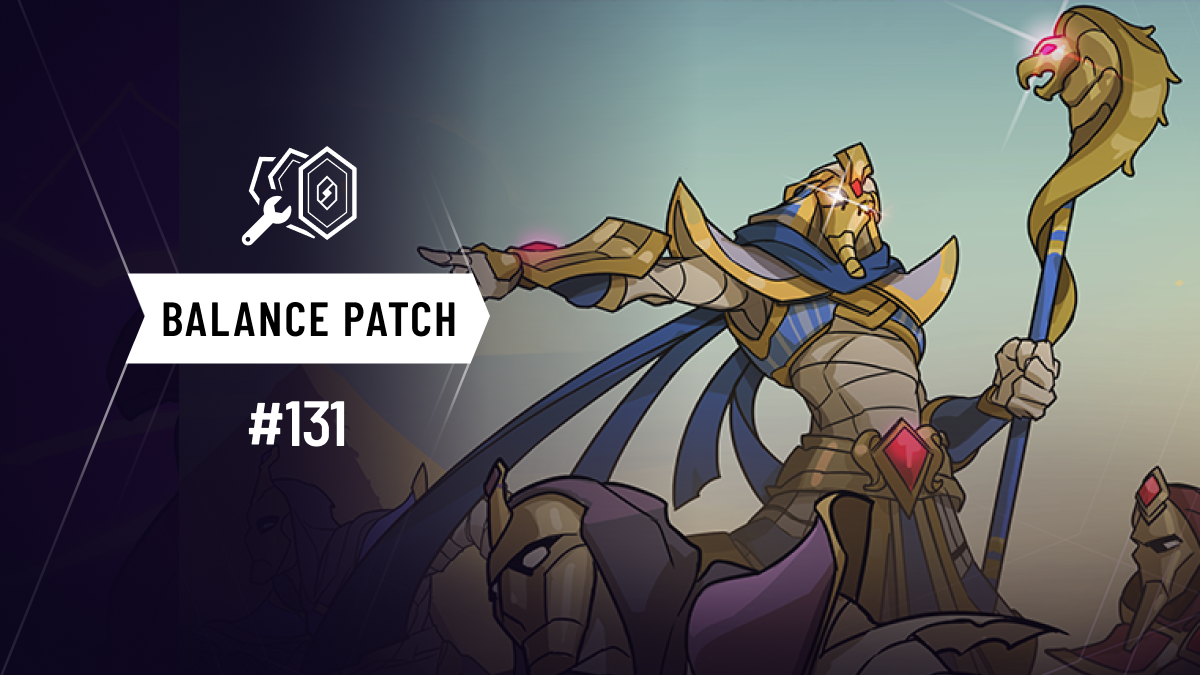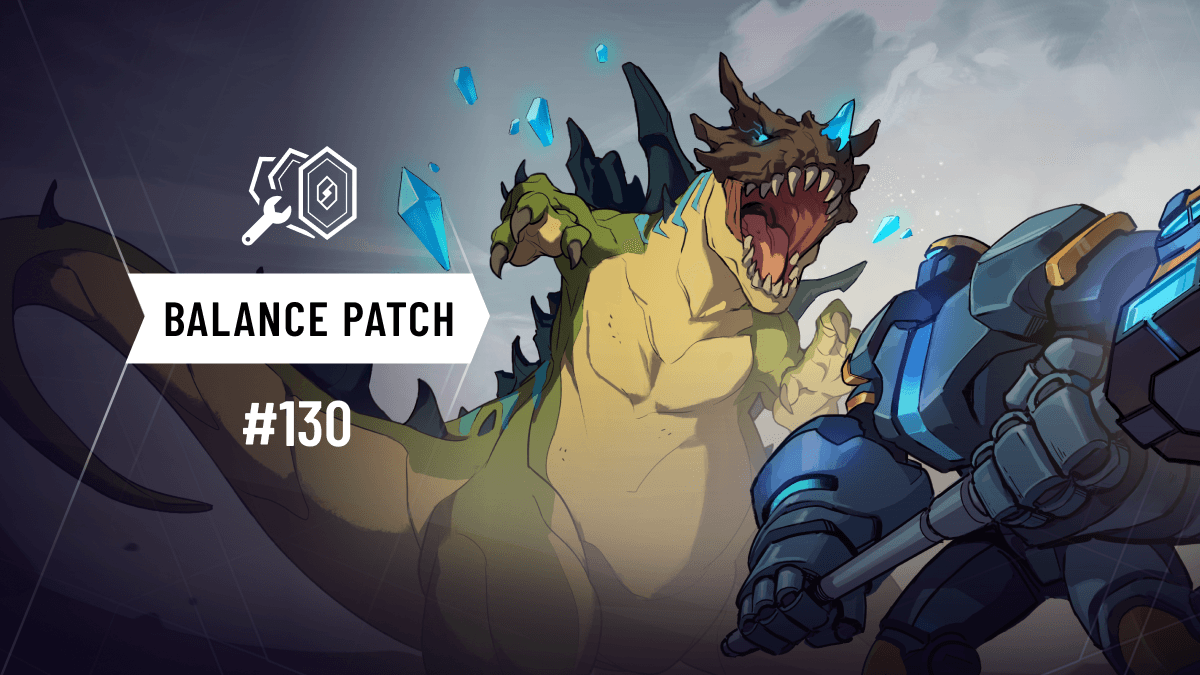Designing Sky - Wisdom Prism Identity

Skyweaver is still in Private Beta, and information provided in this post is subject to change based on playtests and player feedback.
Hello to all our Skyweaver community members, both new and old! Following our last post on the Agility Prism, we’re slowing down a bit to take a look at the more methodical Wisdom Prism, its mechanical identity, and unique strengths and limitations. If you missed either of our previous posts, you can check them out here:
Designing Sky - Agility Prism Identity
Designing Sky - Strength Prism Identity
In-World Themes
At its core, Wisdom is about being at one with all aspects of Sky, understanding and being a part of the greater whole. Wisdom aligned Skyweavers seek to achieve greater understanding of Sky, and their own place within it.
At their best, Wisdom-aligned Skyweavers are guardians of the delicate balance of Sky, great mentors and teachers who aim to expand the understanding and knowledge of all, helping to keep all beings and aspects of Sky in balance with one another.
At their worst, they can be cold and deterministic, content to stand back and watch fate play out, for better or worse, reasoning that whatever happens is the way things are meant to be, and that their intervention would be meaningless.
Core Identity
Wisdom’s core identity is defensive and tactical, focused on outlasting its foes and defeating them through endurance. It excels at using its Spells and Units to disrupt and slow its opponents down. Wisdom has a good mix of Spells that draw cards, remove enemy Units, and help it to heal and protect itself. Wisdom’s Units follow a similar pattern, being defensive and focused on endurance, allowing it to stall and outlast its foes.
Contrasting the relative simplicity of Strength, Wisdom has a wider variety of Spell and Unit effects for players to experiment with. Wisdom is fairly complex to play at a high level due to frequently drawing from outside of its deck. But at a basic level, the good overall stats of its Units, effective earlygame removal tools, and plethora of card generation make it appealing for newer players too, and provide a good contrast to the more aggressive, straightforward playstyles of Strength and Agility.
Strengths
Wisdom has some areas where it is designed to excel. These are some of Wisdom’s most prominent strengths and unique features. Future cards and updates will reinforce these key pillars of Wisdom’s identity.
Defense and Sustain
Wisdom excels at endurance and drawing a fight out, using high health Units and low-cost removal Spells like Whisk Away and Moonbeam to block off its opponent in the earlygame and play for the time it needs to execute its long-term goals. Wisdom is adept at healing itself with cards like Invest, Jakintsu, and Libra, in order to survive until the lategame, making it the premium defensive Prism.
Accelerating its Game-plan
Wisdom is the primary Prism that can accelerate its mana, granting itself a permanent boost to its total maximum mana with cards like Take Root, Turtor, and Gift of Aya. In this way, Wisdom can invest time and resources in the earlygame to help it reach the lategame faster, and overtake its foes by playing its big cards sooner. It can also utilize cards like Tragic Poet and Orchid to reduce the cost of the cards in its hand, further accelerating its lategame plays.
Resource Generation
Wisdom excels at card generation, and is able to draw and generate more cards than any other Prism. Cards like Hydrate, Soul Shepherd, and Prismata allow Wisdom to easily create masses of resources. However, Wisdom tends to excel at quantity over quality, and will often Conjure random cards from its prisms, making its resources less reliable and focused than a Prism like Intellect, forcing it to adapt its gameplan as new resources become available.
Limitations
Wisdom also has some fundamental gameplay limitations and areas where it is designed to be less effective than other Prisms. These core limitations will remain consistent, so as to keep the Prism unique. This isn't to say any of these areas are totally off limits, just that, as a general rule, these are areas where Wisdom will be weaker than the other Prisms, and future cards and designs will respect these limitations.
Reliance on Double-Edged Cards
Many of Wisdom’s most powerful tools have extremely potent effects for their cost. Hydrate allows you to draw 3 cards for 1 mana, and Turtor has fantastic stats and also increases your max mana and draws you a card when played. However, these, along with a number of other Wisdom cards, have the drawback of providing the same benefit to your opponent as they do to you. Meanwhile, a number of Wisdom’s powerful removal tools, like Judgement, Whelm, and Waterline will remove Units on both sides at once, making it hard for Wisdom to maintain its own Units while removing enemies. These powerful but risky cards force Wisdom to plan carefully, and weigh the value of furthering its own game-plan versus the risk inherent to furthering its opponent’s. Thematically, these cards help reinforce Wisdom’s ideological theme of one-ness with the world. It is unwilling to pick favorites, even if doing so would be to its benefit.
Risky Top-End Removal Options
While Wisdom has many excellent removal tools, its most reliable options are generally focused around dealing with small-to-medium sized foes. While it is capable of removing larger threats, the options it does have for removing larger enemies often carry a heavy additional cost or risk. Seal of Doom, for example, gives all Units -6/-6, but also does 3 damage to its user, and causes them to lose one max mana, setting them back a turn in terms of mana. Touch the Sky Dusts every Unit in play, but also sets its user’s health to 16, which can be an issue if their health is greater than that. Doomsday is likely the least risky, but since it attaches Fate to enemy Units, it allows your opponent to draw more cards, which can potentially give them the resources to rebuild their board. So, while Wisdom does have options for wiping out large amounts of Units, many of them require careful thought and weighing of risks to be used efficiently, since they can backfire if wielded carelessly, which fits in with Wisdom’s theme of respecting the world as it is, and that disrupting the natural balance of Sky carries a grave cost.
Difficulty Pressuring Opponents
While Wisdom has the second best stat-to-cost ratio on its Units, second only to Strength, and tied with Agility, it also has the lowest average mana-to-power ratio of any Prism, making its Units good at defense, but poor at aggression. Wisdom also possesses few ways to buff its Units, or to deal direct damage to the enemy Hero via Spells. These factors can lead Wisdom to struggle to fight for control of the board and close out games, even when the enemy Hero has low health, which can allow Wisdom’s opponents to play more fast and loose with their health than they might be able to versus other Prisms.
Well, that’s about all the time we have for this post. Wisdom strives to understand the world and lives of those around it, so next time we’ll be looking at the Prism that’s equally invested in understanding death, Heart!
If you want to learn more about Skyweaver, be sure to check out our Welcome to Sky blogposts here!
What’s your favorite thing about the Wisdom Prism? Do you play with a Wisdom Hero? We want to hear from you! Tell us in our Skyweaver Discord community! Our community managers stream every week on Tuesdays and Fridays, so be sure to tune in at twitch.tv/skyweaverlive to catch their streams. See you in Sky!

Recent Posts















